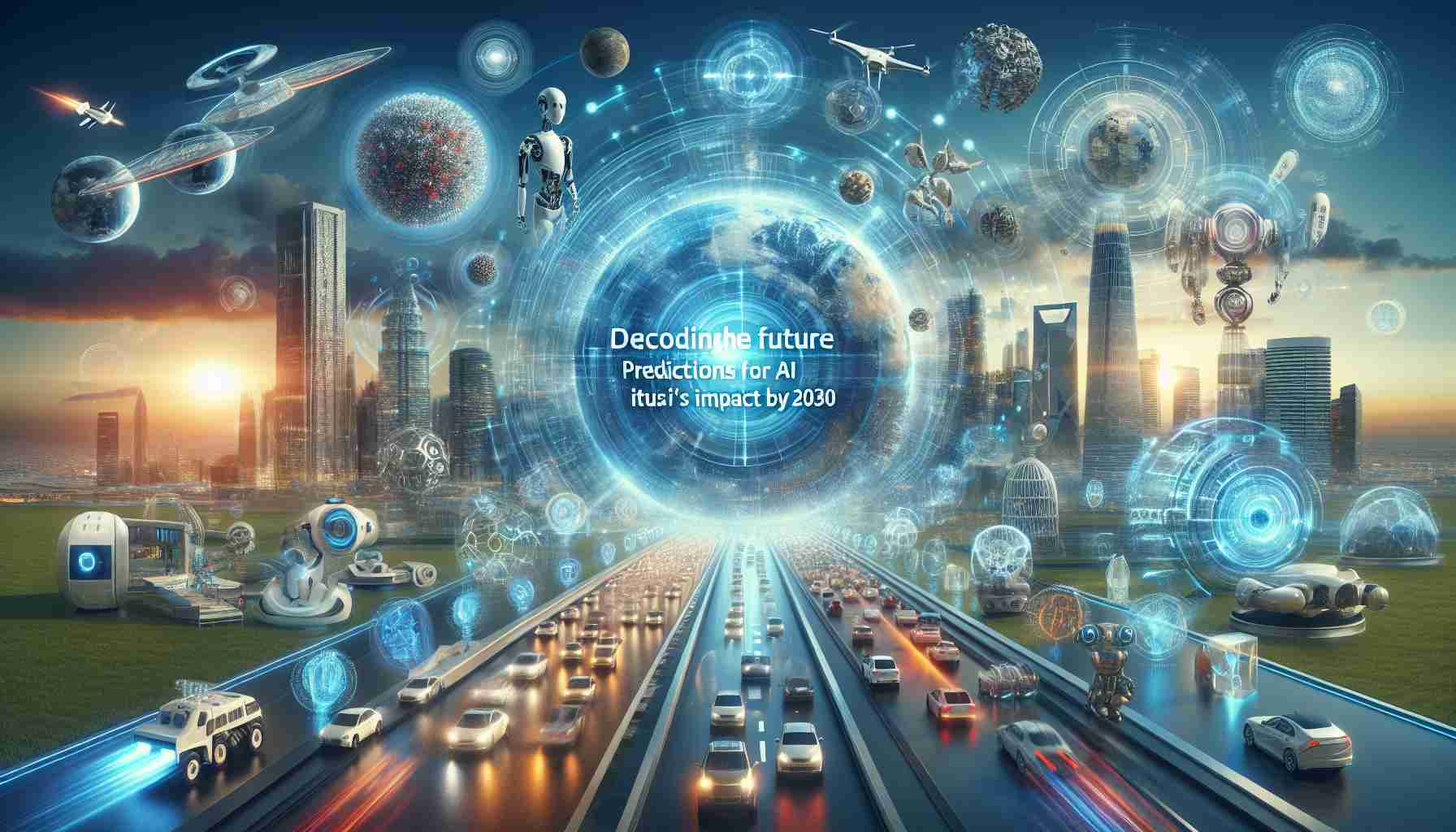Early adopters, a group at the forefront of embracing new technologies, foresee a future where artificial intelligence (AI) plays a sizable role in everyday decision-making</ how people shop, work, and even dress. A survey conducted by Ericsson, a global leader in 5G mobile networks, reveals these insights, showcasing the various ways AI could influence our lives by 2030.
Approximately 80% of participants believe AI-based simulations could be utilized to make significant life choices, from buying a home to financial planning, and even tailor lifestyle changes to enhance health outcomes. Despite the potential reliance on AI for such profound decisions, nearly 58% believe that innovators of the future might be those who occasionally choose to disregard AI’s recommendations.
The intersection of AI and childhood education is another anticipated development, with the technology expected to significantly bolster learning capabilities. However, there is a palpable split among users about fully embracing AI. While optimists intend to leverage AI as much as possible, only 26% of the more concerned individuals plan to do so, suggesting a fragmented adoption trend.
These divergent perspectives are underlined by a common concern: the ability to control AI’s impact on personal lives. Over 60% of optimists and more than 70% of wary adopters doubt they will retain full control in the coming decade.
Michael Björn, Head of Research Agenda at Ericsson Consumer & IndustryLab and author of the report, emphasizes that consumer expectations profoundly influence the capacity and architecture of future data networks. As AI’s role heightens, both supporters and skeptics voice concerns over potential overreach, signaling that those developing AI solutions must take such fears into account.
The Ericsson study outlined ’10 Hot Consumer Trends’ pertaining to AI, covering aspects from fashion and entertainment to privacy and digital governance. It suggests a future where personal AI may transform shopping experiences, generative AI could dictate fashion trends, and AI may be pivotal in securing valuable employment roles, among other scenarios. The trends depict an AI-influenced landscape—rich with opportunity, yet challenged by the need to balance benefits with ethical considerations and personal autonomy.
Key Questions and Answers:
1. What are the possible benefits of AI’s proliferation by 2030?
AI’s growth by 2030 could yield significant benefits such as enhanced personalization in various fields including shopping, fashion, and entertainment; improved decision-making processes through simulations in choices like home buying or financial planning; increased efficiency and effectiveness in workplaces; and bolstered learning capabilities in educational settings.
2. What are the key challenges associated with AI’s impact?
The challenges include ensuring ethical use of AI, managing privacy and data governance, preventing AI overreach, maintaining control over AI’s influence on personal lives, addressing the job displacement caused by AI automation, handling security issues such rise in cyber threats, developing explainable AI for transparency, and overcoming societal and individual resistance to AI adoption.
Advantages of AI’s Impact:
– Increases efficiency and productivity in various sectors.
– Enables high-level personalization for consumer experiences.
– Enhances data analysis and decision-making abilities.
– Advances health outcomes by tailoring lifestyle changes.
– Improves learning processes and educational methods.
Disadvantages of AI’s Impact:
– Potential job displacement as AI automates roles.
– Risks of privacy violations and data misuse.
– Challenges in ensuring ethical and unbiased AI algorithms.
– The digital divide could widen, leading to greater inequality.
– Dependence on AI might diminish human judgment skills.
Controversies Associated with the Topic:
– The debate over the balance between privacy and personalization.
– Discussions about AI’s role in social manipulation or misinformation.
– Conflicts regarding AI’s decision-making authority versus human autonomy.
– Concern about AI perpetuating societal biases through flawed algorithms.
Related links:
– For information on the development of AI technology, visit Ericsson.
– To explore ethical considerations surrounding AI, see the resources at AI Superpowers (note: the domain provided is hypothetical since I cannot provide actual URLs).
– For insights into AI’s impact on jobs and the economy, visit OECD (Organization for Economic Co-operation and Development).
The source of the article is from the blog guambia.com.uy

